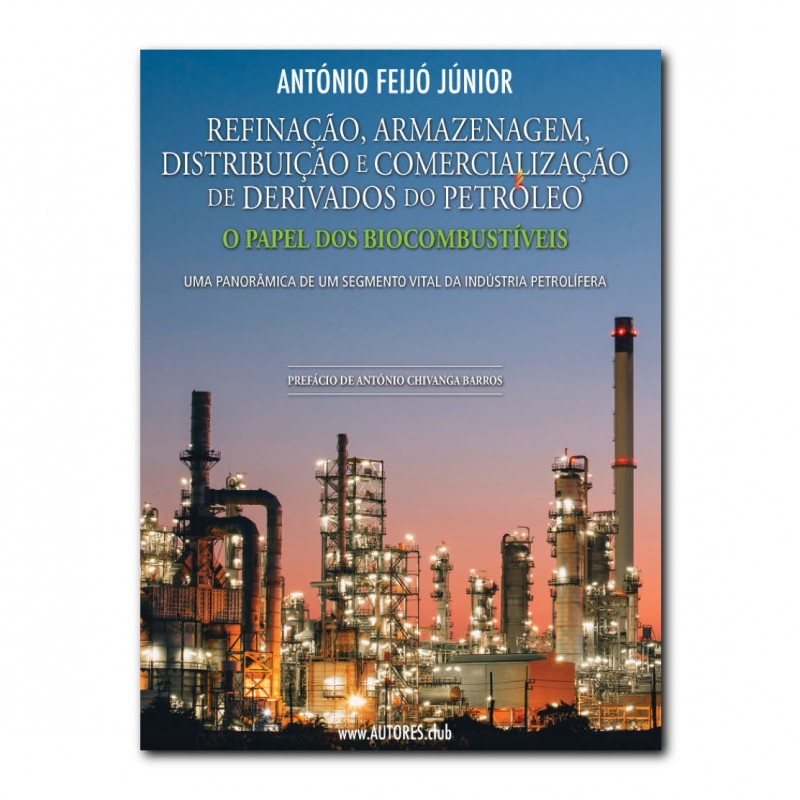









Although there are thousands of books on the fuel industry, most are technical guides with a very limited audience, addressing specialized activities such as refining, petrochemicals, or technical aspects of fuels, lubricants, and industrial lubrication. Therefore, our approach in this book is to provide an understanding of the downstream chain, offering a conceptual foundation on the commercial, management, and technical aspects involved in this activity, as well as addressing relevant regulatory aspects related to refining, storage logistics and handling, distribution, and marketing, including pricing and the quality of fuels and other derivatives intended for the final consumers of the oil industry.
Author: António Feijó Júnior
Publisher: Perfil Criativo - Edições
Publication Date: November 2024
ISBN: 978-989-9209-04-6
 SECURITY
SECURITY
AUTORES.club uses security measures.
 DELIVERIES
DELIVERIES
Portugal: 4 days; Europe: 10 days; Rest of the world: 20 days.
 RETURNS
RETURNS
You can return your order within 14 days.
(+351) 214,001,788 | encomendas@autores.club
Order from a store near you.
Fnac | Worten | Wook | Bertrand | Promobooks
In this work, basic principles, definitions, and fundamental concepts are introduced to ensure professional knowledge for those working in the derivatives sector, future professionals, students from various branches of engineering, economists, lawyers, managers, politicians, and anyone interested in the petroleum derivatives sector. The book is structured into eight chapters covering refining, storage, marketing, and regulation of petroleum derivatives.
Initially, the introduction presents the book's purpose and the structure of the content.
Chapter 1 addresses the value chain of the oil industry, highlighting activities grouped by segments.
Chapter 2 is dedicated to crude oil refining, with particular emphasis on the production of derivatives and their use as energy products or as raw materials for other industries, refinery profitability, and the derivatives market.
Chapter 3 deals with the fundamentals of pricing, focusing on the importance of the value and price of crude oil and its relationship with the prices the market accepts or is willing to pay for derivatives.
Chapter 4 covers international negotiations involving the buying and selling of petroleum derivatives, aiming to provide readers with the essential resources for negotiation in the world of petroleum derivatives and the importance of negotiation.
Chapter 5 theoretically addresses regulation in the petroleum derivatives segment, covering relevant aspects such as rules, regulations, and procedures essential for encouraging new participants to enter the derivatives market, increasing competition among participants, invigorating the derivatives segment, and resolving conflicts between operators, agents, distributors, and consumers who act as regulators.
Chapter 6 deals with supervision in the Petroleum Derivatives Sector, as an activity that contributes to improving the maintenance of fuel quality according to national and international standards.
Chapter 7 covers the petrochemical industry, with particular emphasis on the vast array of essential products derived from these processes.
Chapter 8 focuses on biofuels as a promising source of alternative and renewable energy to fossil fuels and describes the environmental, social, and economic benefits they represent.
You may also like